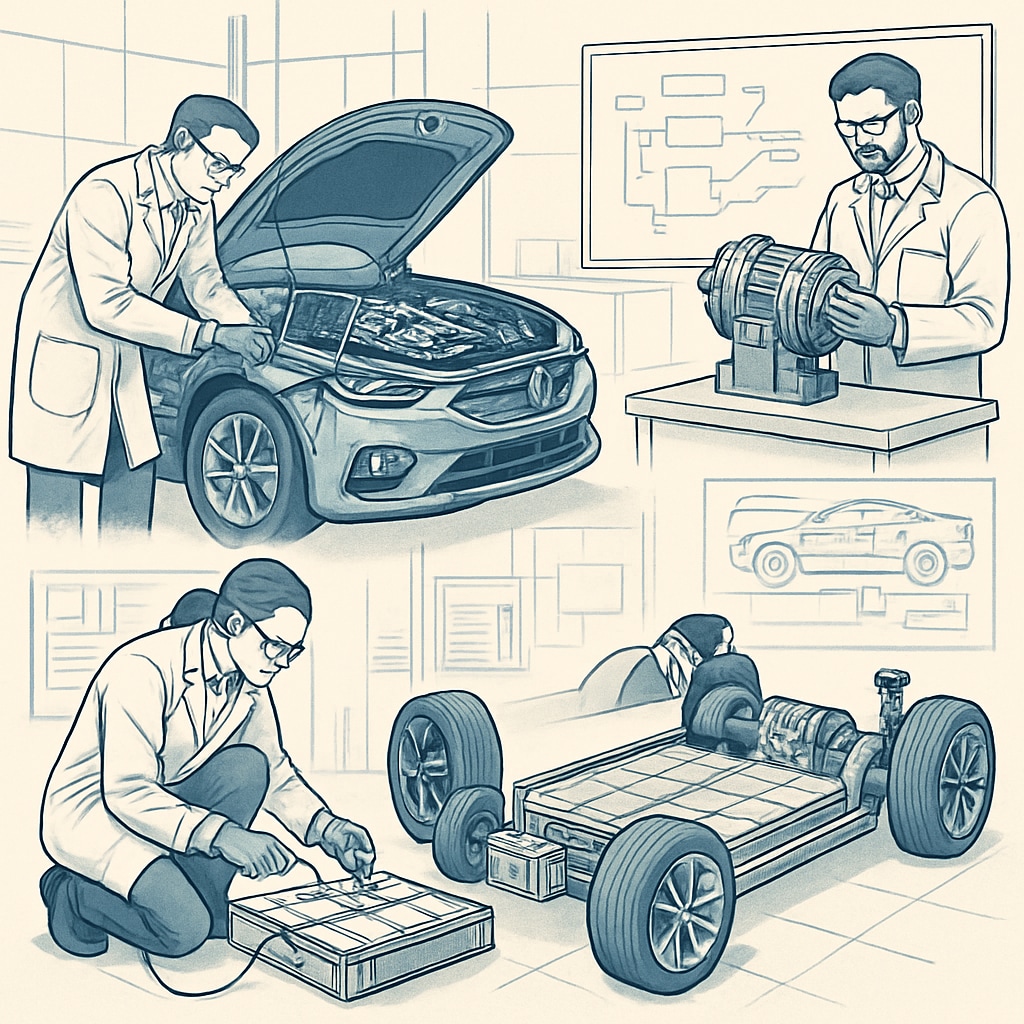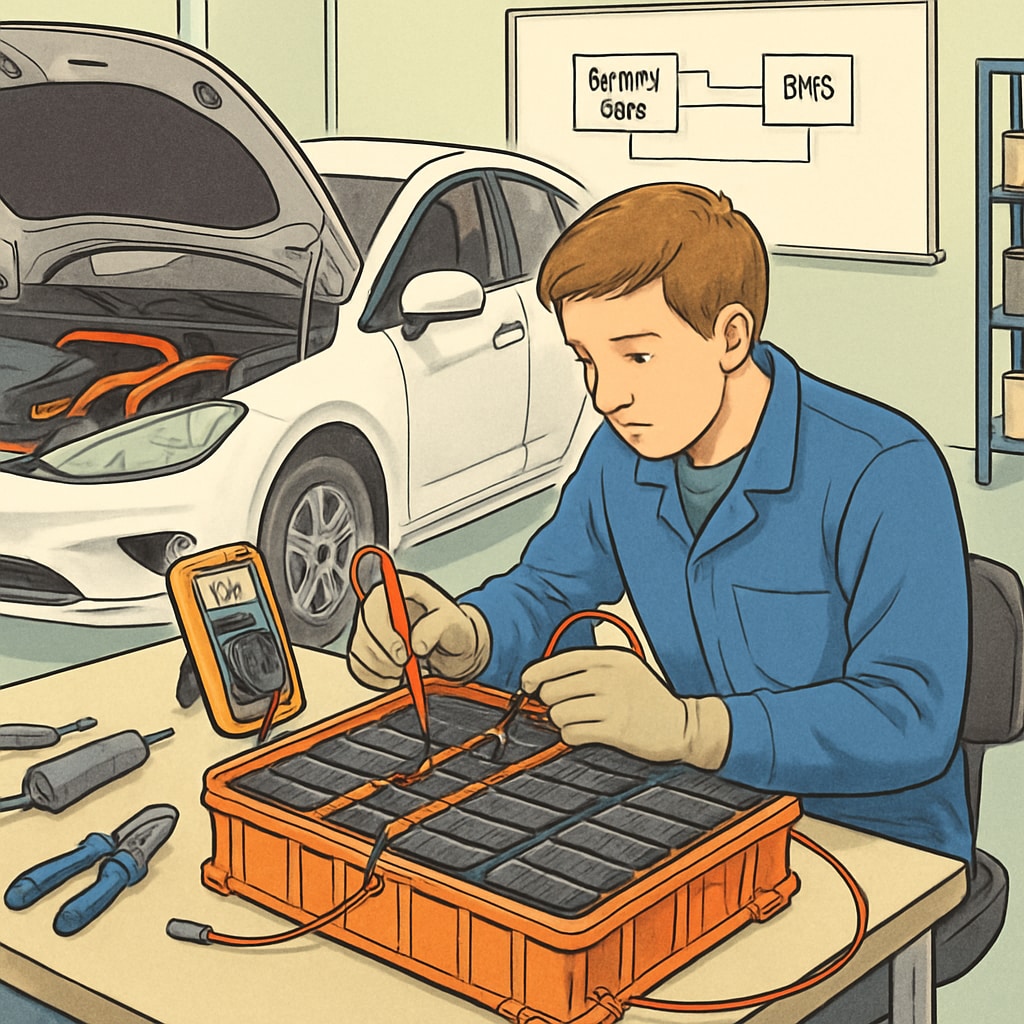In today’s rapidly evolving automotive industry, having expertise in electrical technology is no longer optional—it is essential. The intersection of electrical technology, automotive industry, and career development creates unparalleled opportunities for professionals who have the foresight to adapt to these changes. With the rise of electric vehicles (EVs) and advanced automotive systems, electrical technology apprenticeships can serve as a critical stepping stone for career advancement, offering professionals a unique edge in this transformative era.
Why Electrical Technology Matters in the Automotive Industry
The automotive industry is undergoing a seismic shift driven by electrification, sustainability, and technological innovation. Electric vehicles, hybrid systems, and autonomous driving technologies are redefining the landscape. As a result, electrical systems are becoming the backbone of modern automobiles, from battery management systems to power electronics and sensors.
Professionals with electrical technology knowledge are better equipped to meet the demands of this evolving sector. For example, understanding circuit design, electrical diagnostics, and energy distribution allows automotive professionals to work seamlessly with cutting-edge technologies. This blend of skills is highly sought after as car manufacturers prioritize electrification and advanced automation.

How Apprenticeships Bridge the Gap Between Electrical and Automotive Expertise
Apprenticeships provide a practical and immersive way to develop cross-disciplinary expertise. For aspiring professionals, electrical technology apprenticeships offer hands-on training in areas such as wiring systems, energy storage, and power distribution. These foundational skills are directly transferable to the automotive industry, where electric vehicles and advanced electronics are becoming standard.
In addition, apprenticeships often expose learners to real-world challenges, such as troubleshooting complex electrical systems or integrating electronic components into automotive designs. Such experiences not only build technical proficiency but also foster problem-solving and critical thinking skills—qualities highly valued in the automotive industry.

Career Opportunities for Cross-Disciplinary Professionals
Professionals with expertise in both electrical technology and automotive systems are uniquely positioned for career growth. Here are some key opportunities:
- **Electric Vehicle Development**: Work on designing and optimizing EV systems, including batteries, charging infrastructure, and energy management.
- **Autonomous Driving Systems**: Collaborate on sensor integration and vehicle control systems that rely heavily on electrical components.
- **Sustainability Engineering**: Focus on energy-efficient designs and renewable energy integration within automotive platforms.
- **Diagnostic and Maintenance Roles**: Specialize in troubleshooting and maintaining advanced electrical systems in modern vehicles.
As automotive companies increasingly seek candidates with diverse skill sets, professionals with electrical technology apprenticeships are highly sought after. This demand is reflected in job postings, industry reports, and recruitment trends.
Building a Competitive Edge Through Cross-Disciplinary Learning
To stay ahead in this competitive landscape, professionals must embrace continuous learning and skill development. Combining electrical technology expertise with automotive industry knowledge offers a strategic advantage in interviews, promotions, and long-term career growth.
For example, earning certifications in EV technologies or attending training programs related to autonomous systems can further enhance your career prospects. Additionally, networking with industry leaders and joining professional organizations focused on automotive electrification can open doors to new opportunities.
In conclusion, electrical technology apprenticeships are more than just a starting point—they are a gateway to a thriving career in the automotive industry. By leveraging this experience and embracing cross-disciplinary learning, professionals can position themselves as indispensable assets in this fast-evolving sector.
Readability guidance: Use short paragraphs, incorporate lists to summarize key points, and ensure smooth transitions between sections. Avoid excessive technical jargon and focus on practical insights that resonate with readers.


